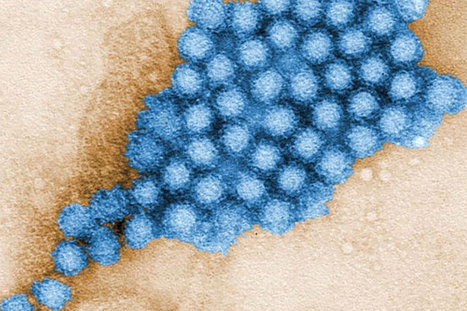
|
Scooped by Juan Lama |
Post-acute COVID-19 syndrome (PACS) affects over 65 million individuals worldwide but treatment options are scarce. We aimed to assess a synbiotic preparation (SIM01) for the alleviation of PACS symptoms.
In this randomised, double-blind, placebo-controlled trial at a tertiary referral centre in Hong Kong, patients with PACS according to the US Centers for Disease Control and Prevention criteria were randomly assigned (1:1) by random permuted blocks to receive SIM01 (10 billion colony-forming units in sachets twice daily) or placebo orally for 6 months. Inclusion criterion was the presence of at least one of 14 PACS symptoms for 4 weeks or more after confirmed SARS-CoV-2 infection, including fatigue, memory loss, difficulty in concentration, insomnia, mood disturbance, hair loss, shortness of breath, coughing, inability to exercise, chest pain, muscle pain, joint pain, gastrointestinal upset, or general unwellness. Individuals were excluded if they were immunocompromised, were pregnant or breastfeeding, were unable to receive oral fluids, or if they had received gastrointestinal surgery in the 30 days before randomisation. Participants, care providers, and investigators were masked to group assignment. The primary outcome was alleviation of PACS symptoms by 6 months, assessed by an interviewer-administered 14-item questionnaire in the intention-to-treat population. Forward stepwise multivariable logistical regression was performed to identify predictors of symptom alleviation. The trial is registered with ClinicalTrials.gov, NCT04950803.
Between June 25, 2021, and Aug 12, 2022, 463 patients were randomly assigned to receive SIM01 (n=232) or placebo (n=231). At 6 months, significantly higher proportions of the SIM01 group had alleviation of fatigue (OR 2·273, 95% CI 1·520–3·397, p=0·0001), memory loss (1·967, 1·271–3·044, p=0·0024), difficulty in concentration (2·644, 1·687–4·143, p<0·0001), gastrointestinal upset (1·995, 1·304–3·051, p=0·0014), and general unwellness (2·360, 1·428–3·900, p=0·0008) compared with the placebo group. Adverse event rates were similar between groups during treatment (SIM01 22 [10%] of 232 vs placebo 25 [11%] of 231; p=0·63). Treatment with SIM01, infection with omicron variants, vaccination before COVID-19, and mild acute COVID-19, were predictors of symptom alleviation (p<0·0036).
Treatment with SIM01 alleviates multiple symptoms of PACS. Our findings have implications on the management of PACS through gut microbiome modulation. Further studies are warranted to explore the beneficial effects of SIM01 in other chronic or post-infection conditions.
Published in The Lancet Infectious Diseases (Dec. 7, 2023):
No comment yet.
Sign up to comment



 Your new post is loading...
Your new post is loading...









